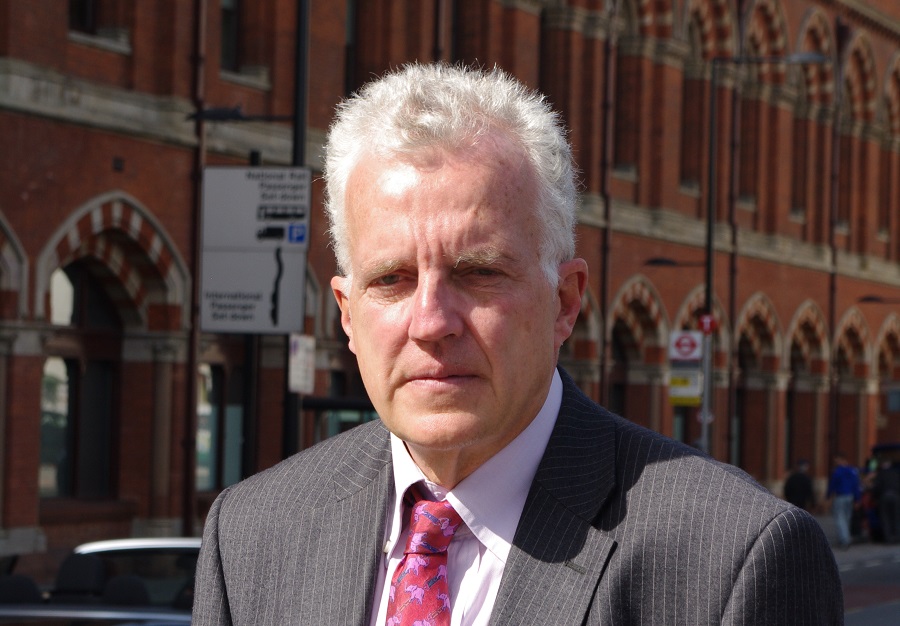Here is a bold prediction about today’s report into cutting costs on the railways: whatever it finds, passengers will suffer.
Sir Roy McNulty, the businessman turned quango junkie, was asked by the previous Government to find ways to curb costs on the railways, which have ballooned from £1 billion a year under British Rail to five times that level of subsidy now.
His preliminary findings revealed a shocking state of affairs. Maintenance work costs 40 per cent more than in mainland Europe; costs for basic tasks such as rail replacement, where technological progress should have brought a 2-3 per cent annual reduction, remain unchanged since privatisation in 1993. Meanwhile Network Rail, which is paid for but not controlled by the Government, has a debt of more than £20 billion and rising.
Most of the proposals leaking from Sir Roy’s team will make commuters splutter into their muesli: ticket office closures, higher fares, reduced services, even possibly — although very unlikely — line closures.
The only suggestion that passengers may savour is the idea that the unions will get a kicking and their Spanish practices will be abolished. In truth, that is a thin political wrapping on an unpalatable package. The unions are inviolable. Train drivers’ wages have soared to £40,000 a year because operators, backed by the Department for Transport, have bought off threats of industrial action by acquiescing to their demands. Ironically, by creating more than 20 separate operators, privatisation gave the drivers real industrial muscle and there is nothing that Philip Hammond, the Transport Secretary, can do about it.
In fact, when it comes to costs, the proposals are likely to be modest, saving a mere £1 billion annually by 2018-19. This suggests that Sir Roy will not tackle the system’s fundamental problem — which is fragmentation.
Forget privatisation. It is a separate issue that often obscures the reason for the mess created by the Railways Act 1993. Essentially, railways work best as a unified business. No end of tinkering with legal contracts and myriad interfaces scattered among a series of operating companies will address the problems caused by separating the track from the trains.
Take one example. Virgin Trains received tens of millions of pounds in compensation from Network Rail when the West Coast Main Line was closed at weekends during the recent upgrade to allow faster services that ultimately benefited its passengers and greatly boosted its income. Where is the financial sense in that?
Or look at how engineering work is currently carried out. Under BR, track engineers would produce a list of work that needed to be done, categorised according to urgency and assessed against the available budget. These days Network Rail does not make such fine judgments. It gets its money in huge dollops every five years and its only remit is to spend it — whatever the state of the industry’s finances.
I have been told that even for the most minor schemes no fewer than 14 people turn up at meetings, where they have to fill in a heap of forms on risk assessment and best practice. Decisions are then made by people sitting at desks hundreds of miles away from the site of the dodgy culvert or ageing bridge. Their priority is to cover their backs, so the work is done whether it is needed or not.
To be fair, David Higgins, the new head of Network Rail, is trying to address these issues by devolving responsibility to local managers. But even if he does find savings, it will be years before they percolate through to the overall balance sheet. That’s the problem with a fragmented industry. Shut a ticket office and the train operating company benefits from the saving, not taxpayers or passengers.
In the days of BR, services were reduced during a recession as demand tailed off. Now, contracts preclude that. Remarkably, during the volcanic ash crisis, Southern, which operates the Gatwick Express, asked the Department of Transport if it could cut services from every 15 minutes to half-hourly because nobody was going to the airport. The answer was: “No, you have to stick to the contract.”
Passengers face having to pay the price for this inefficiency through fares, which are set to rise by 8 per cent next year, cuts in staff and the postponement of the introduction of new rolling stock. Don’t believe a word about fare rationalisation; instead expect increased fares at peak times, fleecing the commuters who are victims of what is, in effect, a monopoly.
There is only one way back to a rational cheap railway. Bring all the disparate parts together under unified control. Whatever Mr Hammond may say, that cannot be done without reintegrating the track and the trains. Until then, the billions will keep seeping away.
